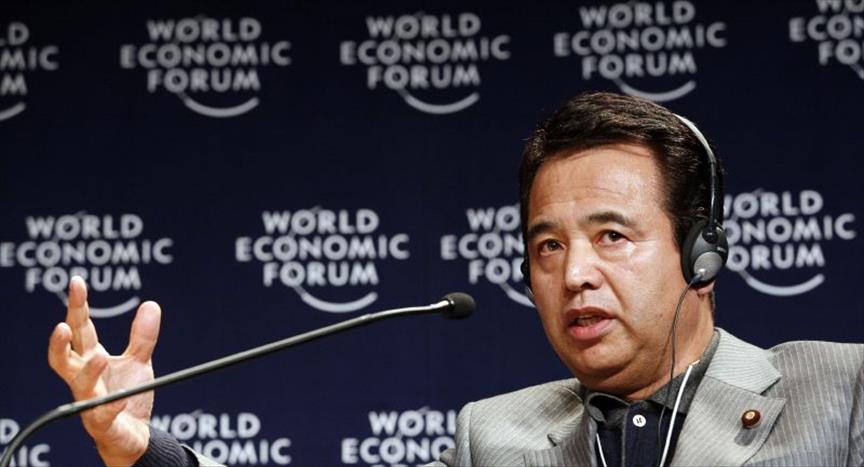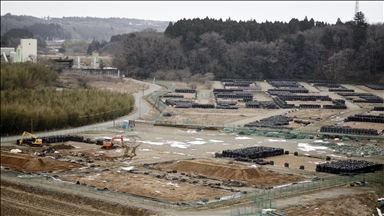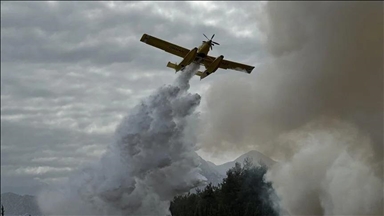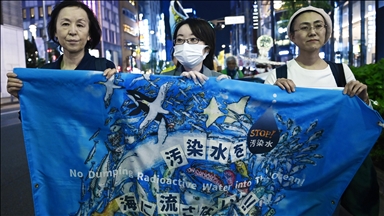Trans-Pacific Partnership talks at stalemate
Looks increasingly as if talks to seal Trans-Pacific Trade regional free-trade agreement will go on forever, with little accomplished.

By Todd Crowell
TOKYO
Negotiations for joining the Trans-Pacific Partnership free trade zone broke down in late September, possibly irrevocably, after the Japanese negotiator, Minister of Economy Akira Amari, walked out of the meeting with the Americans.
That will likely doom the regional free-trade agreement, which has been in negotiation between around a dozen Asia-Pacific nations since 2005. Both parties said a lack of faith by the other had led to the breakdown.
Japan claims that Washington had reneged on a promise to reduce tariffs on imported automobile parts; while the Americans pointed to agricultural protection -- the poison pill of many other free trade negotiations with Japan.
It seems unlikely that the negotiations will resume anytime soon unless the leaders of both countries -- Prime Minister Shinzo Abe and President Barack Obama -- take a personal interest to jump start them, but there are no such signs on either side of the Pacific.
Obama’s address to the opening of the United Nations General Assembly last month made no reference to the trade pact, being heavy on new developments in the Middle East, where the U.S. is spearheading a bombing campaign against the Islamic State of Iraq and the Levant.
For his part, Abe also made no mention of the trade pact in his speech to the opening of the session of Japan's parliament.
According to an Anadolu Agency correspondent in Japan, Abe is in a conservative mode these days -- conservative in the sense of not wanting to rock the boat. The government’s approval ratings took a dive after the cabinet approved July 1 a re-interpretation of the country’s pacifistic constitution to provide for greater military cooperation with allies.
He is not likely to want to alienate any more constituencies during the coming session, and this especially means not alienating the powerful farm lobby by making any serious reductions in tariff barriers for five "sacred cow" agricultural products: beef, pork, rice, wheat, and dairy products.
The Trans-Pacific Partnership (TPP) is a trade agreement encompassing 12 Asian and Pacific nations -- Australia, Brunei Darussalam, Canada, Chile, Japan, Malaysia, Mexico, New Zealand, Peru, Singapore, and Vietnam and the United States -- that is said to be the most far-reaching and comprehensive free-trade agreement ever negotiated.
Japan came late to the negotiations but is considered pivotal to its success.
"There will either be a TPP with Japan or no TPP, at all," says economist Richard Katz, a veteran Japan-watcher.
According to the National Pork Producers Council, which is probably the most militant American farm group pushing for complete elimination of tariffs and other barriers on pork imports, the Japanese still want to keep some 500 tariff lines among the five sacred cows.
"They won't abolish the Gate Price or lower tariffs; we didn't get even a half loaf," Nick Giordano, vice president for international affairs for the pork producers, has complained.
Economists have long lamented the economic distortions that the Liberal Democratic Party government of the past had perpetrated in Japan due to the unyielding grip that a relatively few farmers and their allies have on Japanese trade policy.
All of this to support what are probably fewer than 100,000 farming households in Japan, most of which are led by farmers who are over 60 and often merely part time.
Also distorting the economy are tax breaks on "agricultural" land.
Economist Katz says that Japan spend about 14 percent of its income on food, twice that of the United States. If that figure could be reduced, even marginally, it might free-up trillions of yen for people to spend on other things.
It might also help to make up for some of the shrinkage in consumer spending caused by the recent increase in the national sales tax to eight percent sales tax, which some worry may thrust Japan into a recession.
Joining TPP was to be one of the main pillars in Shinzo Abe’s three-part plan to revitalize Japan’s economy after decades of stagnation, a program usually referred to as "Abenomics."
But these days Abe appears to have a hard time focusing -- moving from one topic to another with no particular plan. One week it is women’s empowerment, the next attracting casinos.
His speech to the opening of parliament’s winter session indicated that his latest crusade will be revitalizing rural economies. It is an important topic -- according to some estimates, roughly half of Japan’s rural communities will disappear due to depopulation -- but also a fairly uncontroversial subject.
Early in his government Abe talked a lot about the "political capital" that he had earned through his landslide election victory in late 2012.
The implication of this was that he would have the clout to overcome vested interests in advancing his economic program.
But at the moment, Abe does not seem at all interested in expending capital on anything controversial. For the moment he appears to be looking forward to a nice, quiet parliamentary session, passing a few relatively non-controversial bills while letting his government approval ratings return to their former highs.
Moreover, the election calendar is beginning to dominate the agenda in both Japan and the U.S. Abe is concerned about several upcoming gubernatorial races, including in the sensitive Fukushima prefecture and Okinawa, and beyond that to the municipal elections in the spring.
Obama worries that, for now, trade liberalization in the crucial automobile industry, might lose his party union support in the run-up to the mid-term Congressional elections next month.
Abe is also concerned about an impending "double" election [both houses of parliament] in 2016, including the upper house, where his party’s majority is dependent on a critical bloc of members beholden to the farm lobbies.
America also faces a presidential election in 2016. That year may seem far away, but a lot of work must go into translating a signed agreement into legislation that can pass Congress on a fast track. And, of course, the two sides haven't even got as far as a signed agreement.
Even if revived, it looks increasingly as if the Trans-Pacific Trade partnership will go the way of the Doha round of trade negotiations with talks going on forever and nothing really accomplished.
Anadolu Agency website contains only a portion of the news stories offered to subscribers in the AA News Broadcasting System (HAS), and in summarized form. Please contact us for subscription options.







